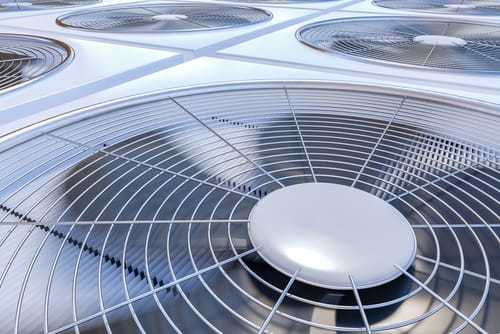- February 24, 2018
Your home HVAC is vital, keeping your house and your family warm, cool, and comfortable. But when is the last time you stopped to take care of your home HVAC? If you want to get the most out of it, it is important to make sure you care for your home HVAC on a regular basis. Your home HVAC needs to be maintained, and keeping an eye, ear, and nose out for your home HVAC’s systems can extend its lifetime, save you money, and increase your quality of life. It’s important to maintain your home HVAC’s outside unit, the vents throughout your house, and to keep an eye on the heater.
Taking Care of your Home HVAC’s Outside Unit
One of the most frequently overlooked systems in the HVAC family is the outdoor unit – out of sight out of mind. This, unfortunately, means that the system which is probably easiest for home HVAC system owners to maintain is left unchecked, which can cause serious problems. It is important to know what a functioning home HVAC’s outdoor unit looks and sounds like, to best maintain the efficiency of the system. A regular light hosing to clear debris is also important after heavy rains and high winds, as well as after the leaves fall. This can help clear the intake vents, allowing the system to gather air easier, costing you less on your energy bill. This can also keep contaminants from reaching your air and keep your home HVAC system running in tip-top shape. Listening to your home HVAC’s outdoor unit is important as well, as a loose or poorly balanced fan can lead to heavy damages and possible replacements. It is a much cheaper solution to maintain and get a fan or belt replaced than it is to replace your entire home HVAC’s outdoor unit.
Taking Care of your Home HVAC’s Vents
An essential part of any home HVAC are the vents, vital to delivering comfortable air to every room of the house they act as the highway of your building. Keeping these vents in the best condition possible is vital to utilizing the full potential of your home HVAC system. First, it is important to leave your vents open. Closing your vents has no real benefit, and may actually cost you money. Closing vents do not actually help make your home HVAC unit run more efficiently since a pressure system is used to deliver the air, the unit work just as hard, if not harder, regardless. This can cause serious problems with your home HVAC unit and should be avoided if possible. It is also vital to regularly change your home HVAC unit’s air filters. Located at the intake vent, which should be larger than the rest, the air filter helps keep your air pure. Replace regularly, as blocking this vent with a clogged filter is like a person having an asthma attack. Your home HVAC unit has to work much harder to get the air it needs, to circulate around the house. Not only this but when an air filter is clogged with contaminants, it can circulate them around the house in more dense packages. Harming your air quality. Maintaining this not only increases the lifespan of your home HVAC but also greatly increases your air quality.
Maintaining your Home HVAC’s Heater
In warmer areas, it might be obvious to maintain your AC unit, and your home HVAC’s vents and air filters, but in colder climates, one must always look to maintain their heater. This system, usually located in the basement, is vital to all things warmth. Warm water, heated air, and if you are lucky, heated floors. These systems usually work through gas burning furnaces and boilers. These systems work to heat your home, without drying it out. Other systems you might have with your home HVAC system could be electric, which require the addition of a humidifier since they dry out the air. These systems require more technical maintenance, so if your home HVAC system runs on an electrical system, it is best to keep up with regularly scheduled visits from a professional to ensure everything is running in tip-top shape. For gas-based systems, it is important to check up on it regularly yourself. Your home HVAC system generally warns you if something is wrong, and keeping an eye out for these signs can save you money. Listening for loud banging, or rocking like the system is off balance could be a sign that it is either uneven, or the gas supply is not steady. Keeping your nose on the lookout for smells of gas and other dangerous odors is important too, but it’s worth noting that if the system has been off for a while, a smell could arise from burning off residue and dust. Looking for obvious signs of leakages is important as well, as a loose pipe could cost you hundreds in your gas bill, and be a serious risk.
Keep your home HVAC running longer with these tips. Clean and keep an eye on your exterior unit, always change the air filters and keep your vents open, and lastly keep an eye on your heating unit. It is also important to remember to run your home HVAC as little as possible to extend its lifespan. Utilizing a smart thermostat, or setting regular schedules, can help extend your home HVAC’s lifespan by years. Pair this with lowering the standards of cooling and warming by just a few degrees, and you can save hundreds on your energy bills, and extend the lifespan of your home HVAC. If you believe something is wrong with your home HVAC unit, don’t hesitate to contact the experts at General Air of Greenville South Carolina.





